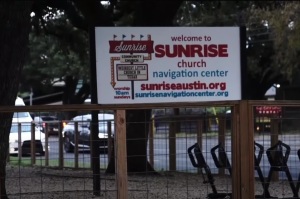Ala. Governor Apologizes for Controversial Christian Remarks
Alabama Governor Robert Bentley apologized for misconstrued statements about Christians being his brothers and sisters and pledged to fight for the rights of all people.
Bentley was unapologetic, however, about his Christian faith. His statement only sought to correct his comments on Monday in a Baptist church proclaiming that only Christians were his brother and sisters.
In an apology statement, Bentley, a Southern Baptist deacon, said, "I will never deny being a born-again Christian. I do have core beliefs and I will die with those core beliefs."
Despite his firm faith stance, Bentley acknowledged in his apology that his comments may have come across as exclusive.
"I do not want to be harmful to others. And I will die if I have to defend someone else's right to worship as they choose," he stated.
Barrett Duke, vice president for public policy of Southern Baptist Ethics and Religious Liberties Commission, praised Bentley for his apology.
Duke explained that Bentley's gaff can be attributed to his newness to politics.
"Here's a man who is leaning on what it means to be a public service figure," he noted.
Bentley, 67, is a retired dermatologist. On the day of the controversial remark, he had been sworn into office at the Alabama Capitol. Shortly afterwards, Bentley went across the street to a service honoring Martin Luther King Jr. Day at King's church, Dexter Avenue Baptist Church.
It is at the pulpit of that church that he uttered, "Anybody here today who has not accepted Jesus Christ as their savior, I'm telling you, you're not my brother and you're not my sister, and I want to be your brother."
Duke said it is "certainly theologically sound" for Bentley to say that Christians "share a special bond." However, he said it is wrong to assume that there are no familial ties between Christians and the rest of humanity.
"In the broader sense, we are all brothers," he said.
Joseph Lowery, the third president of the Southern Christian Leadership Conference, held to the same explanation. He said that whether people acknowledge Him or not, "We all have a common father. God is our father."
"You may not be my brother in Christ, but you're my brother in creation," he remarked.
As a known associate of the late civil rights leader, Lowery said that Dr. King would have felt the same way. Lowery assumed Bentley was likely "confused."
Duke noted that the church is a difficult setting for someone who is supposed to be impartial and fair. This is especially true for someone such as Bentley, who as a Southern Baptist is in a familiar setting – a Baptist church. His statements, as a result, were religious in nature.
Candy Gunther Brown, an associate professor of religious studies at Indiana University in Bloomington, told The Associated Press that Bentley's statements were a "classic altar call."
"He's saying I want to be your brother. That's an invitation," expounded Brown, a student of evangelical Christian literature.
The Rev. Welton Gaddy, president of the Interfaith Alliance, however, criticized the comments as exclusionary and creating division.
"I thought that with his statement he created two classes of citizens in Alabama, those that were his brothers and sisters in Christ and everyone else. As an elected official, he has the responsibility to serve all the people and treat all the people equally," Gaddy told AP.
Duke indicated that the governor was within his rights to express his faith in a setting outside of government grounds.
"I think it is inappropriate to read in anything to what he said," he shared. "There's nothing in what the governor said that said he won't treat people equally."
However, Duke advised Bentley to be mindful of his status as a public figure in the future and to be "sensitive" of the words he uses.
"People are going to be listening to everything he says to see how he is going to treat people of other groups," warned Duke.




























